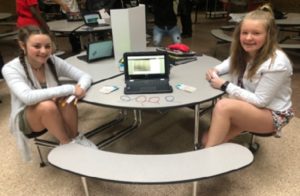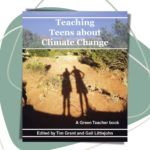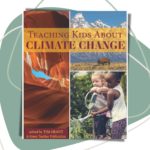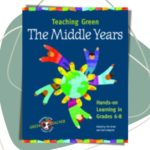Empowering Students through Conservation PBL

To view the photo-rich magazine version, click here.
Originally appears in the Winter 2021 issue.
By Andree R. Philpot
Conservation and empowerment: two words inextricably linked within the realm of ecological and conservation science. Experts agree that when it comes to conservation, local communities should be empowered to help make decisions concerning their surroundings; individuals should be empowered to make ecological changes in their personal lives; and global leaders should instill policies meant to empower their citizens with the knowledge and tools to make conservation a priority[1][3][7][11][12][17][21]. It may not, however, be as widely known that the topic of conservation can be utilized to empower students in their schools and classrooms. The idea of employing conservation-based activities to empower my students is what led me to create a quarter-long, project-based learning unit (PBL) for my 8th-grade Language Arts students that could also be modified for upper-elementary or high school grade levels (described below). By focusing on real-world environmental issues, this project can be integrated across subjects as a cross-curricular unit. Additionally, conservation and sustainability issues are relevant and crucial in today’s social and political climate. Sustainability has become more mainstream, with more leaders, companies, and individuals making efforts towards more eco-friendly behaviors and policies.
Prior to designing this project, I researched lessons and activities related to conservation and the promotion of student empowerment, and how these subjects can be integrated with the various U.S. school standards that teachers across the country are required to implement in their lessons. Conservation was the focus of the project as well as the tool to empower my students as learners and as world citizens. When discussing student empowerment in relation to schooling, it will be used henceforth to mean the terms agency, self-efficacy, and internalization that students possess in relation to their educations[5][6][19][10][20][24][27]. Agency is a key component of empowerment.
This content is restricted to subscribers only.
If you are not yet a subscriber, please consider taking out a subscription here.
If you are an existing subscriber, kindly log in or contact us at info@greenteacher.com for more information.










